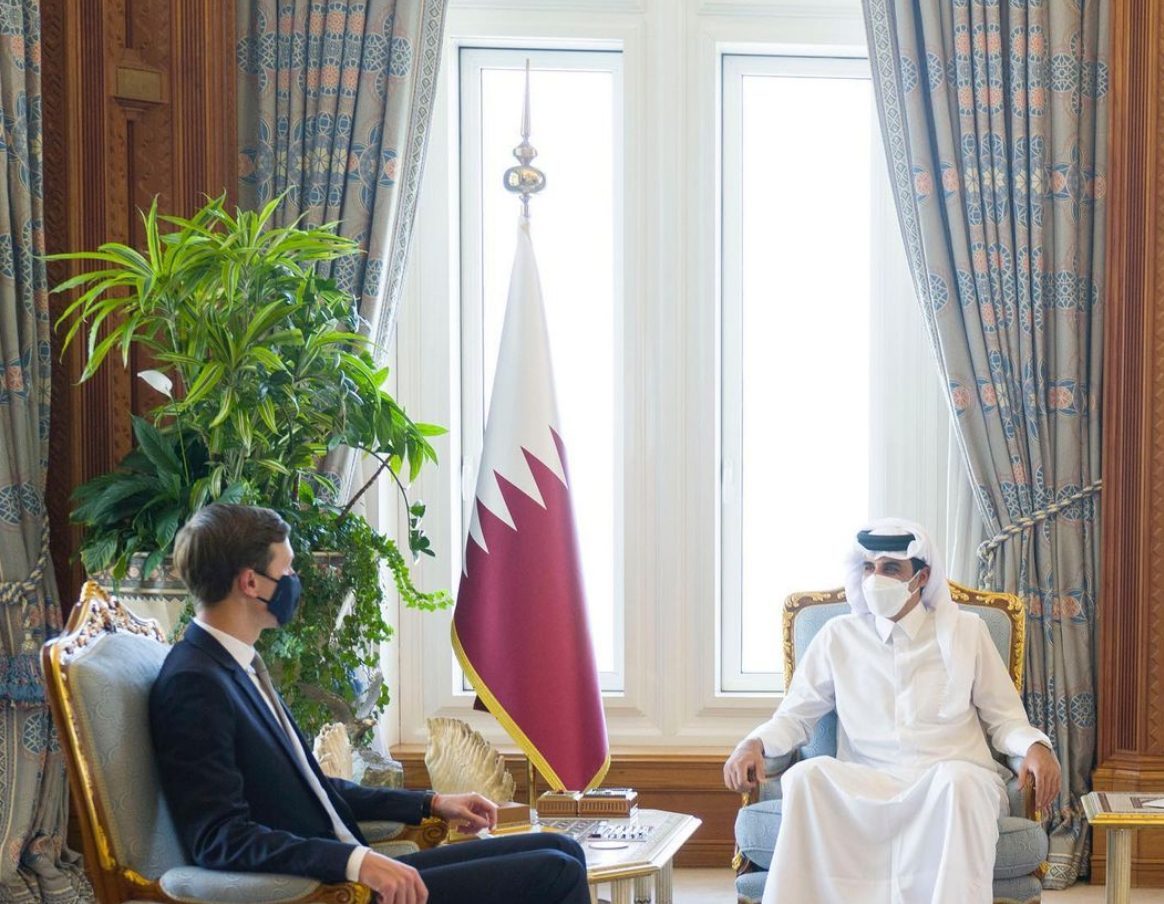The investigation questions whether Jared Kushner influenced US’ foreign policy in the Middle East
Democratic members of the United States Congress have launched an investigation into the role of Jared Kushner after a reverse in the US’ foreign policy in the Middle East.
The investigation examines whether Kushner’s billion-dollar rescue deal for a family-owned skyscraper played a role in US President Donald Trump’s decision to withdraw support for the blockade on Qatar a year after he had encouraged it.
In 2018, Jared Kushner was trying to raise money to pay the whopping $1.2bn mortgage on his family owned 666 Fifth Avenue building. Kushner was also a senior White House advisor, in charge of the United States’ Middle East foreign policy.
During the summit in Riyadh, Jared and Ivanka had an unmonitored dinner with MBS. Nobody knows what they talked about. Then, ten days later, the United States supported the blockade of Qatar.
— Vicky Ward (@VickyPJWard) March 29, 2019
Brookefield Asset management, which counts Qatar’s sovereign fund, Qatar Investment Authority, as one of its clients and second-largest stakeholder, paid nearly 100 years of rent upfront when it leased 666 Fifth Avenue in 2018, months before the Kushner mortgage was due.
Congressional Democrats Ron Wyden and Joaquin Castro wrote: “While Brookfield has claimed that Qatari representatives had no involvement in the 666 Fifth Avenue transaction, we remain troubled that Qatari funds ended up in a billion-dollar rescue for a company directly tied to Jared Kushner.”
“Federal criminal conflicts of interest statutes for senior White House officials extend not only to matters affecting their own financial interests, but that of their direct relatives,” they added in the investigation report.
Throughout 2015 and 2016, Jared and Charles Kushner negotiated with Qatari investor Sheikh Hamad bin Jassim al-Thani, a former prime minister of Qatar, to refinance the building. Al-Thani has previously been the CEO of the country’s sovereign wealth fund.
During a meeting between Al-Thani and Kushner in December 2016, the former agreed to invest at least $500 million. However, the deal ultimately fell through when Kushner could not find funding from any other sources due to the worry about public scrutiny from his role in the Trump White House. According to the Democrats, this marked the turn in US’ support for Qatar.
Almost instantly, Trump’s administration moved closer to Saudi Arabia than any prior US administration, signalling its intention with Trump’s first foreign trip outside the US to Riyadh.
The trip essentially led to the precipitation of the Saudi-led quartet of the UAE, Bahrain, and Egypt’s blockade on Qatar.
Trump also went as far as claiming credit for engineering the crisis in a tweet posted just a day after the announcement of the blockade.
President Trump had also previously called Qatar a “funder of terrorism” during an appearance alongside the President of Romania at the White House.
However, soon after the Brookefield deal in 2018, Trump seemingly readjusted his stance and lauded the Qatari Emir for becoming a “big advocate” of combating terrorist financing.
A deal may be imminent but how long will it take to rebuild trust within the GCC?
Qatar “buys a lot of equipment from us, a lot of purchases in the United States and a lot of military airplanes, missiles,” Trump said during the Amir’s trip to Washington DC in 2018.
In a letter to a senior White House lawyer, Mr Wyden and Mr Castro asked to see any ethics advice provided to Mr Kushner regarding his work on Middle East policy.
“The stunning reversal in US policy towards Qatar raises serious questions about what role Jared Kushner – and the financial interests of his family – may have played in influencing US foreign policy regarding the blockade,” they wrote.
The investigation comes as movements to end the Qatar blockade and subsequent GCC crisis finally begins to make headway, with all parties involved in the dispute announcing intentions for a resolution.







